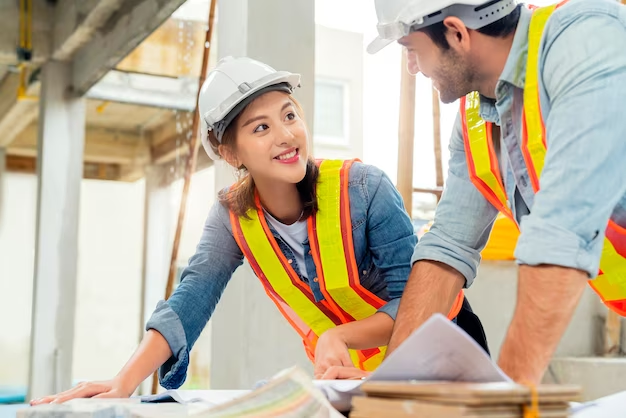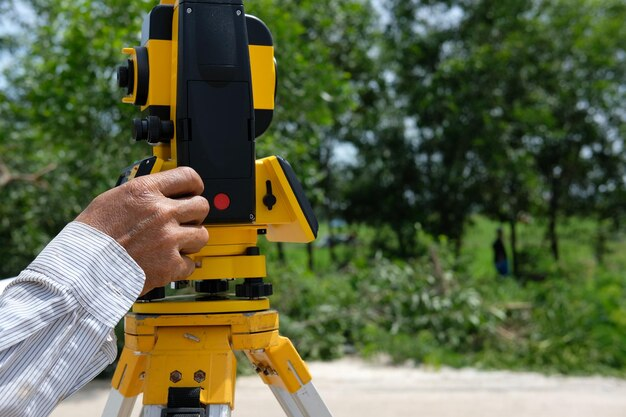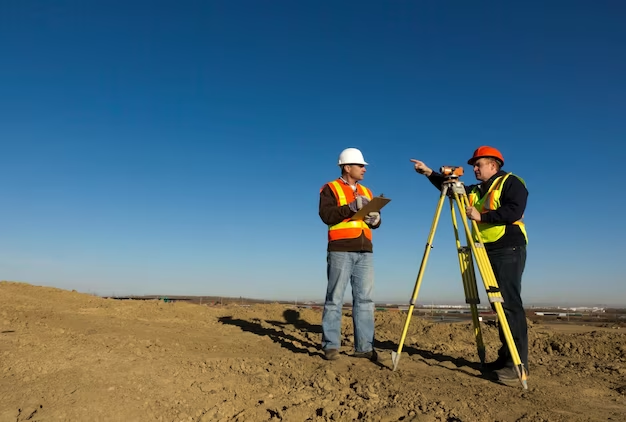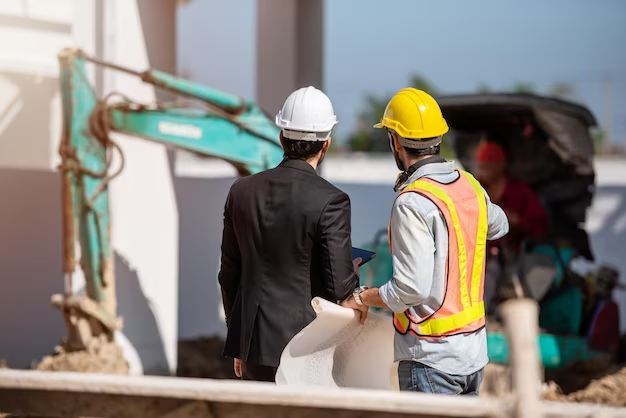The real estate and construction industries rely heavily on building surveying, which offers crucial information regarding the state and worth of properties. This piece examines what a building survey entails while also exploring the numerous types available. Once you finish reading, you will have gained an extensive comprehension of how important this field is in shaping our dealings with constructed spaces.
When it comes to enhancing your online presence and boosting your website’s authority, understanding the significance of backlinks is paramount. What Types of Backlinks Should Companies Build? Delve into this article to uncover the secrets of effective backlink strategies
The Essence of Building Surveying
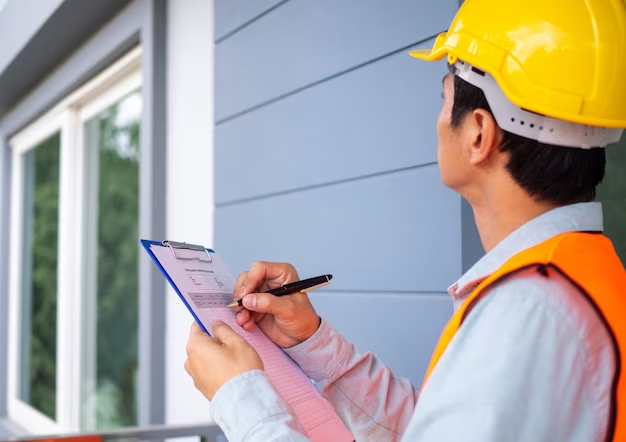
Fundamentally, building surveying encompasses a thorough investigation and evaluation of a property. Whether your objective is purchasing, vending or upholding it, comprehending the essence of this process can prove to be critical. The primary aim of conducting a building survey is to evaluate various components such as the state-of-the-art infrastructure alongside its structural integrity thereby providing an extensive insight into what lies beyond just superficial aesthetics.
Types of Building Surveys
There are several types of building surveys, each designed to meet specific objectives and address the distinct requirements of property owners, buyers, and real estate experts. Let’s delve into these varieties in greater detail:
| Survey Type | Purpose | Use Cases |
| Structural Survey | The evaluation centers on the building’s structural soundness, encompassing its foundation, walls, roof as well as components. | A detailed condition report is often utilized when acquiring older properties or in instances where structural concerns arise. |
| Condition Survey | Assesses the overall condition of a property in order to detect any shortcomings or upkeep requirements. | Homeowners and property investors frequently request commission for budgeting essential repairs and enhancements. |
| Building Pathology Survey | Examines particular concerns such as moisture, inadequate insulation, or structural breakdowns. | It is crucial to offer analysis and appropriate solutions when potential issues or concerns regarding a building’s functionality surface. |
| Historic Building Survey | Crafted specifically for aged and historically noteworthy edifices, with a focus on conservation and refurbishment. | It is vital to establish guidelines for the preservation and modern adherence of heritage properties or culturally/architecturally significant buildings. |
| Energy Efficiency Survey | Evaluates energy efficiency and suggests ways to conserve resources, thereby lowering expenses related to operations. | Selected by property owners who aim to decrease energy consumption and expenses while recognizing economical enhancements. |
Different types of building surveys are provided to serve a specific purpose and address the diverse requirements of property owners, buyers, and real estate experts.
The Role of a Building Surveyor
The roles of building surveyors involve a multitude of tasks that cover diverse areas within the realm of construction and property management. Such duties encompass:
- Building Inspections: Building inspections involve comprehensive evaluations of both fresh and current constructions. Building surveyors carefully examine the structure’s condition, spotting any flaws or safety hazards while checking for potential structural difficulties as well.
- Code Compliance: A vital component of a building surveyor’s duties involves guaranteeing that structures comply with both municipal and national construction codes and standards. This entails assessing architectural drafts and construction records to confirm adherence to regulations.
- Property Evaluation: When building surveyors assess a property, they take into account multiple factors including the age, past maintenance and prospects for future renovations or upkeep in order to ascertain its overall condition.
- Advisory Services: Expert advice is offered by Advisory Services to property owners, buyers and developers on subjects such as maintenance, repairs or renovation projects relating to the properties.
- Documentation: Through documentation, building surveyors meticulously track their inspections and assessments which hold great value for both property owners and regulatory bodies.
- Safety Assessment: Top priority is given to ensuring the safety of building occupants through a Safety Assessment. Corrective measures are recommended by Building surveyors when they identify safety hazards such as fire risks or structural weaknesses.
Why Building Surveys are Essential
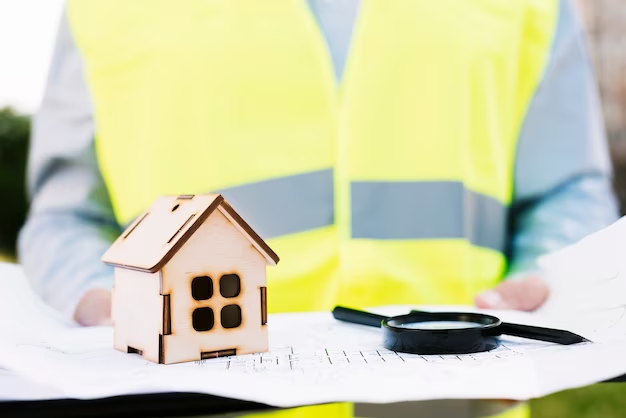
The importance of building surveys cannot be overstated when it comes to property assessment and decision-making. They provide vital information about the state and security of a building, which affects not just buyers’ choices but also legal compliance and property valuation. Let’s explore why conducting an in-depth survey is essential for any real estate transaction or investment opportunity.
Informed Decision Making
One of the key roles in aiding buyers to make informed decisions about their property purchase is played by building surveys. Here’s how:
- Identification of Hidden Issues: By conducting a building survey, one can identify concealed issues which are not readily detectable through an ordinary viewing. This assessment encompasses the evaluation of structural soundness, shortcomings and probable predicaments in a property to provide comprehensive insight into its condition.
- Cost Estimation: Building surveys facilitate cost estimation by identifying current and prospective issues. This enables buyers to anticipate maintenance and repair expenditures, aiding in financial planning for the future.
- Negotiation Power: With the results of a building survey in hand, buyers have leverage to negotiate with the seller for either a reduced price or essential repairs prior to completing their purchase. Such negotiations can prevent unforeseen financial strain in future.
- Peace of Mind: The assurance of a well-informed investment that comes with a building survey gives buyers peace of mind regarding the condition of the property.
Property Value Assessment
Building surveys have a significant impact on property valuation, which can influence sale prices and insurance premiums:
- Accurate Valuation: A building survey provides an accurate assessment of a property’s condition, which is vital for determining its market value. It helps both buyers and sellers agree on a fair price.
- Insurance Premiums: Insurance companies often consider the results of building surveys when calculating premiums. A well-maintained property with a positive survey can lead to lower insurance costs.
- Future Investment: Property owners can use building survey reports to plan and budget for necessary maintenance and repairs, thereby safeguarding and potentially increasing the property’s value over time.
Safety and Compliance
Building surveys are essential for ensuring the safety of occupants and compliance with legal standards:
- Safety Assessment: Building surveys assess the structural integrity of a property, identifying potential hazards such as unstable foundations, electrical issues, or fire risks. This helps ensure the safety of occupants.
- Legal Compliance: Many countries and regions have building codes and regulations that properties must adhere to. Building surveys help property owners and landlords ensure that their buildings comply with these standards, preventing legal issues and penalties.
- Renovation Planning: When planning renovations or alterations to a property, a building survey can identify any necessary structural changes or improvements to meet safety and compliance requirements.
Deep Dive into a Building Survey (Level 3 Survey)
A Level 3 Building Survey is the most detailed and comprehensive type of survey. It is particularly recommended for older, larger, or non-standard properties. This survey includes:
Thoroughness of Examination
One of the distinguishing features of a Level 3 Building Survey is its unparalleled thoroughness. Surveyors leave no stone unturned, taking a deep dive into every accessible part of the property. This meticulous examination is vital for identifying both visible and hidden defects that might affect the property’s condition and value.
During the survey, the professional may employ various tools and techniques to assess different aspects of the property. This can include moisture meters, thermal imaging cameras, and even access to specialist equipment like scaffolding or drones when needed. These tools enhance the surveyor’s ability to detect potential issues.
Detailed Report
Upon completion of the Level 3 Building Survey, a detailed report is produced. This report is a comprehensive document that outlines the findings and assessments made during the survey. It serves as an invaluable resource for property owners and potential buyers, offering the following key elements:
- Defects and Issues: The report highlights any defects or problems identified during the survey. This includes structural issues, signs of dampness, rot, subsidence, and more. Each problem is described in detail, often with accompanying photographs, so that it can be clearly understood.
- Potential Problems: In addition to existing defects, the report may identify potential problems that could arise in the future. This foresight helps property owners take preventative measures or budget for future repairs.
- Repair Options: The report provides recommendations and advice on how to address the identified issues. This includes suggested repair methods, estimated costs, and a priority ranking to help property owners make informed decisions.
- Building Condition Assessment: A Level 3 Building Survey also includes an overall assessment of the building’s condition. This summary provides an at-a-glance understanding of the property’s health, helping buyers and owners gauge its suitability for their needs.
Benefits of a Level 3 Building Survey
Investing in a Level 3 Building Survey offers numerous advantages:
- Informed Decision-Making: Buyers gain insight into the true condition of the property, allowing them to negotiate pricing or make informed decisions about their purchase.
- Preventative Action: Property owners can proactively address defects and potential issues, saving them from costly repairs in the future.
- Safety Assurance: Ensures that the property is safe for habitation and identifies any potential hazards.
- Insurance and Mortgage Approval: Some insurance providers and mortgage lenders may require a Level 3 Building Survey to assess risk accurately.
- Preservation of Historic Properties: For older or historic properties, a Level 3 Building Survey helps in preserving their historical and architectural significance.
Conclusion
Building surveying is more than just a technical assessment; it’s a critical tool in the lifecycle of a property. Whether you’re delving into a building survey for purchase, renovation, or maintenance, the insights provided are invaluable. Remember, knowing what a building survey is and choosing the right type can be the key to safeguarding your investment and ensuring the longevity of your property.
In an ever-evolving real estate landscape, the role of building surveys and surveyors remains pivotal. By embracing the nuances of building surveying, we can better understand, appreciate, and care for the structures that are integral to our daily lives.
FAQ
Q: How often should a building survey be conducted?
A: It depends on the type of property and its usage. However, it’s advisable to have a survey done at the time of purchase and periodically for maintenance.
Q: Can a building survey identify all defects?
A: While building surveys are thorough, they may not uncover all hidden defects, especially those inaccessible areas.
Q: How long does a building survey take?
A: The duration varies based on the property size and type of survey. A Level 3 Survey can take several hours to a full day.
Q: Is a building survey legally required?
A: It’s not legally mandated, but highly recommended for the reasons mentioned earlier.

